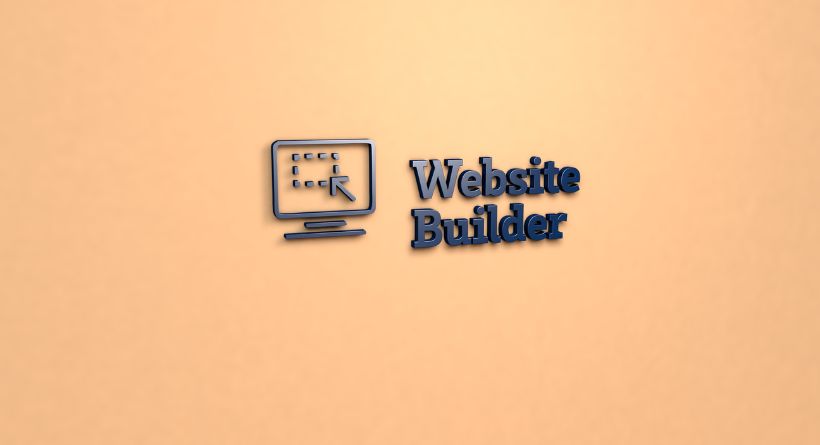It’s now simpler than ever to establish your own website without knowing any code thanks to website builders. Even site builders designed specifically for e-commerce sites and blogs exist. The finest website builders are simple to use, reasonably priced, and flexible.
The most common choices come with templates or themes, giving you a place to start with your designs. You may now upload your own photographs or text and rapidly publish thanks to this. Most of the website builders on our list are all-in-one packages that charge a single monthly cost for web hosting, domain registration, and an integrated editor.
We evaluated hundreds of solutions based on price, usability, features, storage and bandwidth limits, user ratings, and more in order to choose the best website builder. We really hope that our advice will assist you in identifying the best choice for your particular requirements and financial constraints.
A website builder is what?
A website builder is a platform that provides a drag-and-drop interface that enables users with little to no coding skills to easily construct a website. These systems often have pre-built themes, possibilities for creating a custom domain, hosting capabilities, integrated picture and video storage, and more. Additionally, third-party interfaces are often accessible, enabling you to include components like shopping carts and lead gathering tools. Advanced services may also come with personalised email addresses and SEO campaign analytics tools.
How Do Web Builders Operate?
Your drag-and-drop instructions are translated into code by a website builder. Either the business will host your website or a connection will be made to your hosting firm. The majority of website builders include a variety of themes or templates that are appropriate for various kinds of websites. A portfolio, as an example, might require a different template than an online shop. Many of the characteristics may be altered once you choose a template. This might include things like font, layout, and text and picture sizes, depending on the website builder. Additionally, you may be able to integrate movies and add contact forms.
While many of the most popular website builders do not need coding, most systems do let users modify HTML and CSS to fit their requirements.
The Best Way to Pick a Website Builder
There is no secret formula for selecting the finest website builder that works for everyone. To meet your requirements, you must select the ideal ratio of price and features.
Decide What You Need
To help you focus, ask yourself these questions:
- Do site users need to be able to interact with the pages, or is it enough to just show information?
- Are you hoping to get the contact information of prospective consumers or offer goods or services?
- Will you be working with a third-party service provider or administering your site yourself?
- Are you prepared to pay more for more features?
- How much layout and design customization are you looking for?
- Do you need to develop any special features, such as tests, forms, or newsletters?
When comparing goods, take into account these factors, and you’ll quickly locate a service that meets your needs.
Learn about Key Features
Many of the challenging aspects of operating a website are made easy and understandable by website builders. A list of some of the most typical characteristics is shown below.
Interface with drag and drop
Many website builders let you drag and drop internet page elements to create designs that resemble collages. This might apply to any element on your website, such as text, images, video, or audio. Every website builder provides a different level of customising freedom. While some businesses utilise themes that are more difficult to modify, others let you alter almost every component of a web page without using any code at all.
Storage for images and videos
Uploading images and videos is simple with website builders. You will have access to a picture gallery on your account with Squarespace, for instance. This will enable you to modify and delete images and videos from various sites while keeping storing them for later use. Storage options often differ per subscription package.
Domains and hosting
A website server and a domain name are the other two elements you require when creating a website (the URL used to navigate to your site). All three functions are offered by several website builders. You will need to move your domain to the new platform if you currently have a domain name but wish to use a different website builder (for instance, if you bought your domain name via GoDaddy but want to use Wix for design).
Integrating with other parties
Adding third-party software, such as shopping carts or social network feeds, is simple with website builders. Another often used connection is lead capture forms, which let prospective clients or customers fill out their information and then dump it straight into your favourite CRM or data repository.
Support for mobile devices
Mobile compatibility is a crucial element for any website since so many people use their phones to explore the internet. You may see the mobile version of your website while making edits thanks to the automated integration of this capability by many website builders. Some even have the ability to automatically change website components so that a single design works effectively across a variety of devices.
Enterprise emai
The majority of website builders allow you to set up email addresses using your domain name as the extension. Make careful to choose the ideal plan for your requirements since some always charge more for this service while others provide one or two emails for free and charge for each subsequent email.
Analytics for SEO
While many individuals use Google Analytics to measure traffic, the majority of website builders have their own methods that are simpler for the typical person to understand. This will notify you of the websites from which your traffic originates and the methods used by visitors to find you. You could discover the necessity to invest in specialised analytics software if you’re actively working to improve your SEO and broaden the audience for your website. But for the majority of people and small companies, the information provided by their website builder is enough.
What Is the Price to Build a Website?
Selecting a platform is merely one step in the process of constructing a website. Additionally, you should think about the price of hosting, domain names, SEO analytics, personalised email features, graphic design, and more. To ensure that your website is updated often and remains current for new users, you could even wish to engage a content manager. To fully understand how much your site will cost, you should examine the rates of every web design expenses.
How to Create an Effective Website
Here are some crucial pointers to assist you in building a great website:
A desktop and mobile device design
Images, content, and design components on a website that is mobile-responsive are automatically adjusted to load swiftly and effectively on a mobile device. More than 60% of traffic in the United States now comes from mobile devices, thus it’s critical that your website be mobile-responsive.
The majority of contemporary site builders are responsive to mobile devices, however even those may not be flawlessly so. Always be sure to preview your designs on various-sized desktop and mobile displays. If you find any mistakes, you may fix your designs by altering the element’s size or even by omitting certain parts on particular screen sizes.
Apply AMP
Your blog should be AMP-optimized to guarantee rapid loading times on mobile devices. Accelerated mobile pages are known as AMPs. Google (along with many other partners) is making an effort to increase mobile traffic in order to improve user experience. Make advantage of the AMP capability offered by your website builder! The user experience on your website is enhanced, which will probably help you rank better in search engines.
Think about built-in templates and themes
The phrases “theme” and “template” are sometimes used synonymously. They are pre-built page designs that often feature a header, a footer, and menu navigation with the most popular pages (home, about, contact, and blog). The majority of themes come with example graphics and text that you may modify with your own material. The global template may often be altered to better suit your requirements.
Most website builders will provide a selection of both free and paid themes. These may make it possible for you to launch a well-designed site much more quickly than if you were to develop it yourself. Nevertheless, not every topic is made equally. As you add your material, be sure to preview all of your pages to ensure there are no inconsistencies or mistakes.
Include an SSL certificate
Data flows to and from a website are encrypted by a file known as a secure sockets layer (SSL) certificate. Therefore, the SSL certificate protects the privacy of the data when someone accesses your secure website or submits information in any areas on your site (forms, login, password, or credit card information). The security of your website is crucial for the user experience, and having an SSL certificate may help you rank better in search engines.
Is a Website Builder Necessary?
The simplest approach to make a website if you don’t know how to code is to use a website builder. The second choice is to hire a professional or learn how to code yourself in order to develop your website. Hiring someone has the advantage of giving you total control over the website’s appearance.
Working with a website builder will probably expose you to design issues that the builder is unable to address. Let’s imagine, for instance, that the theme you’re using doesn’t support a drop-down menu but you would want one. Or maybe you like a certain template but are unable to alter the colour scheme.
Each website builder has its own restrictions, and you often only become aware of them as you use the tool and its themes. The finest website builders give more than enough capabilities to create a decent website if you don’t want total creative freedom.
Additional Web Design Fundamentals
Forbes Advisor has created a list of other services you would need to launch and maintain a successful website. For additional crucial details, look at these guides:
- top web hosting companies
- Exceptional Domain Registrars
- Top Services for SSL Certificates
Methodology
Forbes Advisor collected thousands of data points on the top website builders—and their various plans—to create our list of the best website builders. The data was then divided into five main categories and 43 subcategories.
We paid close attention to how much the different plans cost. Additionally, we took into account aspects like storage, bandwidth, tools, templates, and mobile responsiveness, as well as user feedback and customer service. To account for qualitative factors like popularity and standout features or policies, we also included an expert rating.
Frequently Asked Questions (FAQs)
What is now the best website builder?
Weebly, GoDaddy, and Squarespace are the top three website builders currently on the market. These platforms provide drag-and-drop interfaces and pre-built themes, making it simple and economical to build an effective website.
What should I expect to spend for a website?
If you don’t mind using a subdomain and showing advertisements, you may make a website for a personal project for free. Depending on whether you want to have an online shop, the initial cost to create a small company website should be between $200 and $300. Monthly maintenance costs should be between $5 and $50.
How can I obtain a website at the least price?
The cheapest approach to create a website, outside of the free alternatives offered, is to download WordPress, obtain a free theme, and construct the website from scratch. You’ll still need to choose the most inexpensive web hosting, which costs between $1 and $10 per month, and register a domain, both of which cost about $15 per year.







